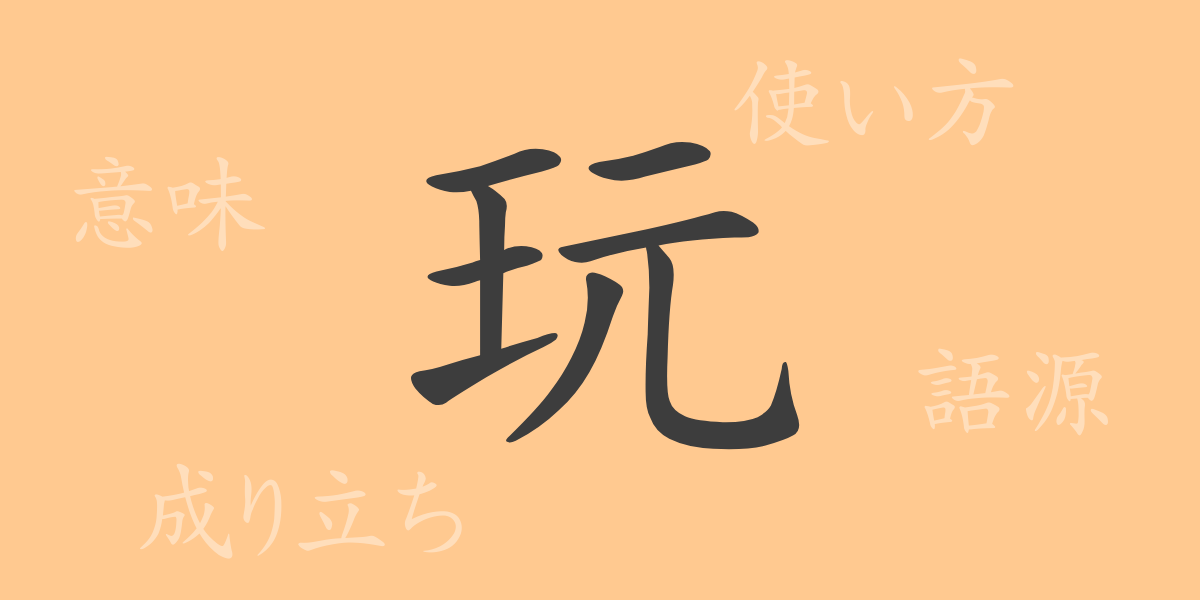In Japanese culture, 漢字(Kanji) play a role that goes beyond mere characters. They not only convey the meaning of words but also encapsulate history, philosophy, and even art, forming a unique world of their own. In this feature, we spotlight the Kanji ‘玩’ (Gan), delving into its allure. While ‘玩’ is not commonly encountered in everyday life, we will explore its origins, meanings, usage, and related idioms to uncover the rich expressive world this Kanji embodies.
The Origins (Etymology) of 玩
The Kanji ‘玩’ (Gan) was used in ancient China to mean enjoying something with one’s hands. This character is composed of ‘王’ (Ou), which represents a jade, and ‘元’ (Gen), meaning to hold in the hand. Essentially, ‘玩’ is thought to originate from the image of royals or nobles rolling jade in their hands for amusement. Over time, ‘玩’ has come to signify not only playing but also enjoying or evaluating something with appreciation.
The Meaning and Usage of 玩
‘玩’ (Gan) carries meanings such as to play, to enjoy, and to admire. It is particularly used to refer to the refined pleasure of enjoying something wholeheartedly, such as admiring art. Metaphorically, it can also mean to fiddle with or toy with something. As for usage, ‘玩’ can be a noun as in ‘玩具’ (Gangu), meaning toy, or a verb as in ‘玩味’ (Ganmi)する, meaning to savor or appreciate.
Readings, Stroke Count, and Radical of 玩
There is specific information about the readings and elements that make up the Kanji ‘玩’.
- Readings: On’yomi (Sino-Japanese reading) is ‘Gan’ , no particular Kun’yomi (native Japanese reading)
- Stroke Count: A total of 8 strokes
- Radical: 玉 (Tama/Gyokuhen)
Idioms, Phrases, and Proverbs Using 玩 and Their Meanings
Idioms and phrases that include ‘玩’ reflect its rich meanings. For example, ‘玩味’ (Ganmi) means to thoroughly enjoy the subtleties of something, ‘玩具’ (Gangu) refers to tools for children to play with, and ‘寿玩’ (Jyugan) signifies games or entertainment for celebrating longevity. These idioms express the positive emotions associated with play and enjoyment inherent in the Kanji ‘玩’.
Conclusion on 玩
Although the Kanji ‘玩’ may not be frequently used, it occupies a unique place in the Japanese language. This character, signifying play and entertainment, symbolizes the Japanese culture and values of enjoying something with heart, not just as a way to pass the time. From toys to savoring experiences, ‘玩’ is used in various contexts, adding a rich hue to our lives as one of the many expressive Kanji.

























